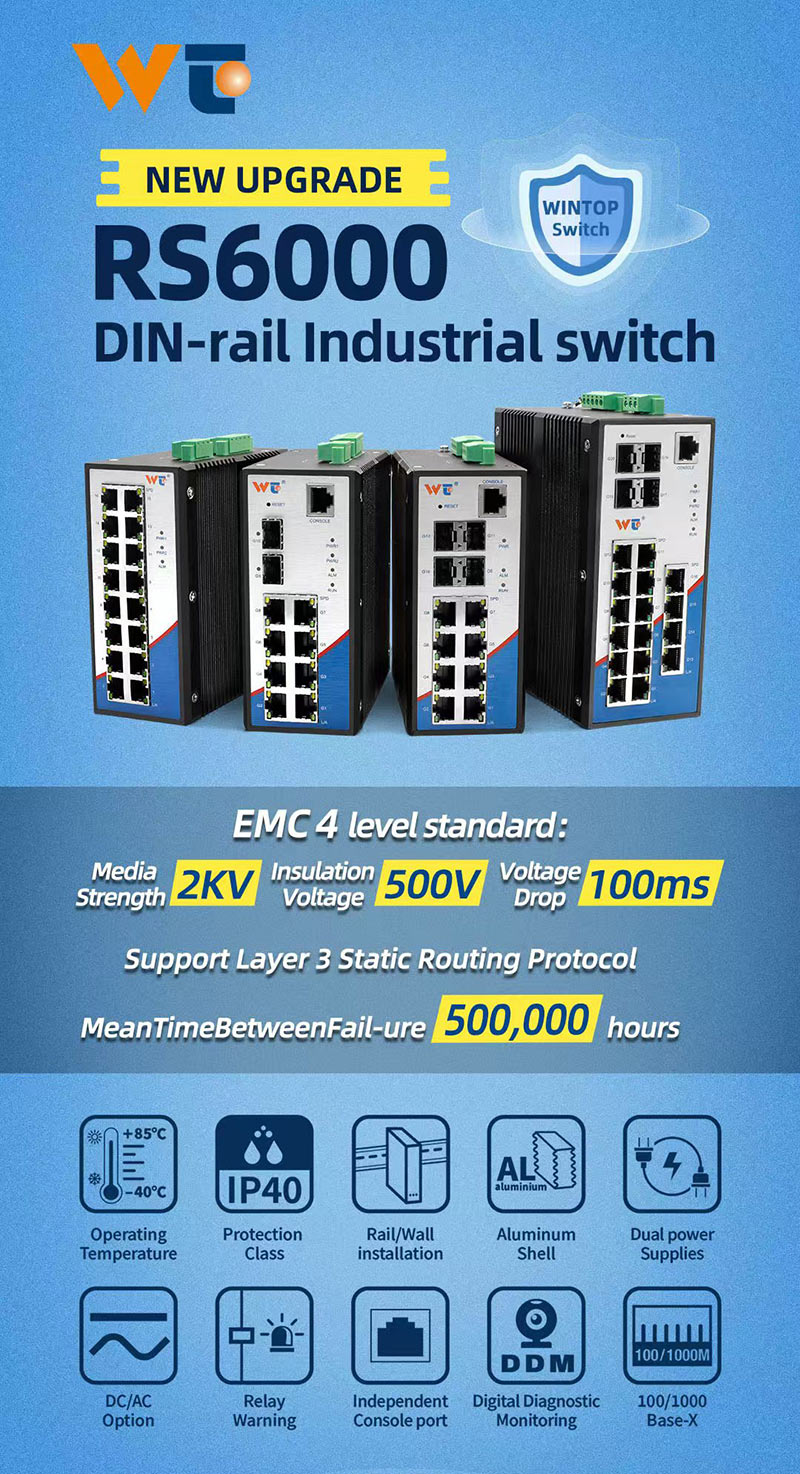The Rise of Industrial Switch Companies: Shaping the Future of Automation
In the evolving landscape of industrial automation, the significance of robust, reliable, and high-performance network components cannot be overstated. Central to this infrastructure are industrial switches—devices engineered to withstand harsh environmental conditions while ensuring seamless data transmission. As industries increasingly adopt automation and the Industrial Internet of Things (IIoT), the demand for superior industrial switch companies has surged. These companies are pivotal in providing the technology that underpins modern industrial networks.
The Role of Industrial Switches
Industrial switches are specialized network devices designed to operate in the demanding environments typically found in manufacturing plants, transportation systems, energy grids, and other industrial settings. Unlike their commercial counterparts, industrial switches are built to endure extreme temperatures, humidity, dust, vibration, and electromagnetic interference. They play a critical role in maintaining the integrity and efficiency of data communication networks, which are essential for monitoring and controlling automated processes.
Leading Industrial Switch Companies
The market for industrial switches is competitive, with several key players leading the charge in innovation and quality. Some of the most prominent industrial switch companies include:
- Cisco Systems, Inc.: Renowned for its leadership in networking technology, Cisco extends its expertise to the industrial sector with a range of ruggedized switches designed for reliability and scalability.
- Siemens AG: A global powerhouse in automation and digitalization, Siemens offers a comprehensive portfolio of industrial Ethernet switches that support high-performance networking in challenging environments.
- Belden Inc.: With its Hirschmann brand, Belden provides industrial switches known for their robust design and advanced features, catering to the needs of industries such as oil and gas, transportation, and manufacturing.
- Moxa Inc.: Specializing in industrial networking, computing, and automation solutions, Moxa's switches are designed to deliver secure and resilient networks for critical applications.
- Phoenix Contact: This company offers a wide array of industrial switches that are integral to building reliable network infrastructures in sectors ranging from renewable energy to automotive manufacturing.
Key Features and Technologies
Industrial switches are distinguished by several key features and technologies that enhance their performance and durability:
- Rugged Construction: Industrial switches are housed in robust enclosures that protect against mechanical stress, moisture, and corrosive elements.
- Wide Temperature Range: These switches can operate in extreme temperatures, often ranging from -40°C to 75°C, ensuring reliability in diverse environments.
- Power over Ethernet (PoE): Many industrial switches support PoE, enabling them to supply power to connected devices such as IP cameras and wireless access points through the same cable used for data transmission.
- Redundancy Protocols: To ensure network resilience, industrial switches often incorporate redundancy protocols such as Rapid Spanning Tree Protocol (RSTP) and Media Redundancy Protocol (MRP), which provide failover mechanisms in case of a network link failure.
- Advanced Security: Cybersecurity is paramount in industrial settings. Leading industrial switches come equipped with advanced security features, including firewalls, encryption, and access control lists (ACLs), to safeguard against cyber threats.
Applications and Impact
The applications of industrial switches are vast and varied. In manufacturing, they facilitate real-time communication between machinery and control systems, enhancing productivity and reducing downtime. In transportation, industrial switches support the connectivity of surveillance systems, traffic control, and passenger information systems, contributing to safer and more efficient transit operations. Energy sectors utilize these switches to manage and monitor power grids, ensuring stable and continuous energy supply.
The impact of industrial switch companies extends beyond individual industries. By providing the backbone for industrial automation and IIoT, these companies drive innovation, operational efficiency, and economic growth. Their technologies enable businesses to achieve higher levels of precision, safety, and environmental sustainability.
The Future of Industrial Switches
Looking ahead, industrial switch companies are poised to continue their trajectory of innovation. The integration of artificial intelligence (AI) and machine learning (ML) into industrial switches promises to revolutionize network management, allowing for predictive maintenance and smarter, self-optimizing networks. Furthermore, the advent of 5G technology will bring unprecedented speed and connectivity, further enhancing the capabilities of industrial networks.
In conclusion, industrial switch companies are at the forefront of transforming the industrial landscape. Through their dedication to developing resilient, high-performance networking solutions, they play an essential role in advancing automation and connectivity in some of the world's most demanding environments. As industries continue to embrace digitalization, the importance of these companies will only grow, cementing their position as critical enablers of the future industrial ecosystem.
